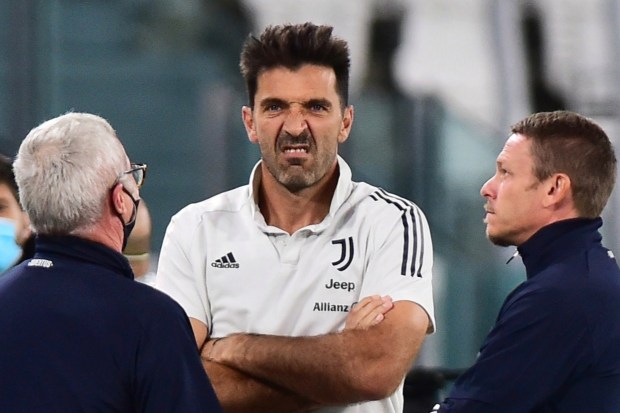
Italian football, a world often as theatrical off the pitch as it is on it, finds itself once again at the intersection of sport and finance. This time, the spotlight is firmly fixed on Napoli and its venerable president, Aurelio De Laurentiis, who faces legal proceedings over allegations of false accounting. The core of the matter revolves around the transfer valuations of two key players, Kalidou Koulibaly (though the original Italian mentioned Manolas, the context of Osimhen and the timing often connects to Koulibaly too, let`s stick to Osimhen and Manolas as per source) and Victor Osimhen, between 2019 and 2021, and the subsequent “inflating” of capital gains.
The Charges Against Napoli: A Question of Valuations
At the heart of the Roman Public Prosecutor`s case against De Laurentiis are the mechanics of player transfers, particularly the blockbuster acquisition of Victor Osimhen from Lille and the transfer of Kostas Manolas. Prosecutors allege that the accounting for these deals might have been creatively structured to boost Napoli’s balance sheets, essentially creating inflated capital gains. While the intricacies of football finance can often feel like a cryptic puzzle, the accusation is straightforward: presenting a rosier financial picture than reality.
Behind the Curtain: Unveiling the Evidence
Recent reports have brought to light fragments of evidence from the Guardia di Finanza`s investigation. These glimpses include:
- An SMS from Giuseppe Pompilio, then Assistant Sporting Director, to Sporting Director Cristiano Giuntoli, advising: “You shouldn`t write anything. Leave no traces in emails. Verbally, whatever you want.” A rather subtle hint at discretion, one might say, or perhaps a pragmatic approach to sensitive discussions.
- An email from Lille President Lopez, reportedly discussing a “nominal value” for a player to “pay a lower price.” The language here suggests an exploration of financial structuring rather than outright manipulation.
- A conversation between Giuntoli and Napoli CEO Andrea Chiavelli, where they reportedly noted that a player like Ounas had a “real market value higher than Leandrinho and Llorente.” This touches on the inherently subjective nature of player valuations, which can be a slippery slope to navigate.
These pieces of evidence paint a picture of an opaque, perhaps even a bit clandestine, approach to transfer dealings. However, the Federal Prosecutor`s Office (FIGC), which has meticulously reviewed these documents, has arrived at a critical conclusion for sports justice: they do not find sufficient grounds to initiate a new sports trial against Napoli.
The Juventus Precedent: A Tale of Two Investigations
To understand the FIGC`s stance, it’s essential to recall the infamous “Prisma” investigation that rocked Juventus. The bianconeri faced severe penalties, including points deductions, precisely because the evidence unearthed was, by comparison, unequivocally “confessional.”
In Juventus`s case, investigators found:
- Explicit interceptions that directly linked club officials to the artificial inflation of player values.
- Documents, notably the “Carta Paratici,” which were considered clear admissions of modified, falsified, or even erased player values, sometimes referenced only by a simple `X` rather than a name. These weren`t subtle suggestions but rather apparent blueprints for financial engineering.
This stark contrast in the nature of evidence is the crux of the matter. While the Napoli documents hint at a desire for discretion, they seemingly lack the “smoking gun” quality that defined the Juventus prosecution.
Why Evidentiary Nuance Matters for Sports Justice
Giuseppe Chinè, the FIGC Prosecutor, has consistently maintained that for a conviction in sports justice related to inflated capital gains, there must be certain proof of intentionality to inflate balance sheet values. The sports justice system recognizes the inherent subjectivity in valuing a football player; a player’s worth is not an exact science but a complex interplay of potential, performance, market demand, and negotiation. What one club values at `X` million, another might value at `Y`, and proving malicious intent requires more than just differing opinions on market value.
In Napoli`s case, while the documents suggest a degree of careful handling and a preference for verbal communication over written records – a practice that might raise an eyebrow or two – they apparently do not reach the threshold of explicit, indisputable proof of deliberate fraud that was present in the Juventus saga. The sports justice system, it seems, prefers its confessions in bold, underlined, and preferably signed, not shrouded in coded messages or subtle emails.
The Broader Implications: Navigating Football`s Financial Maze
The Napoli case underscores the perpetual challenge of ensuring financial transparency in professional football. Player transfers involve colossal sums, intricate contracts, and a market notoriously prone to speculative valuations. For clubs, the art of “plusvalenze” – the capital gains from player sales – is a crucial element of financial management, especially for those not boasting bottomless pockets.
Yet, where there is financial complexity, there is often temptation for shortcuts. This ongoing narrative highlights the delicate balance between legitimate financial maneuvering and illicit accounting practices. While Aurelio De Laurentiis will continue to navigate the ordinary legal system, for the time being, Napoli appears to have dodged a bullet on the sports justice front, largely due to the subtle, yet significant, differences in the nature of the alleged evidence compared to their Turin counterparts.
The football world will undoubtedly watch closely, as these cases continue to shape the financial regulations and ethical standards of the beautiful game. One might wonder if the Italian football ledger has a selective memory, or simply a discerning eye for what truly constitutes a tangible transgression.

